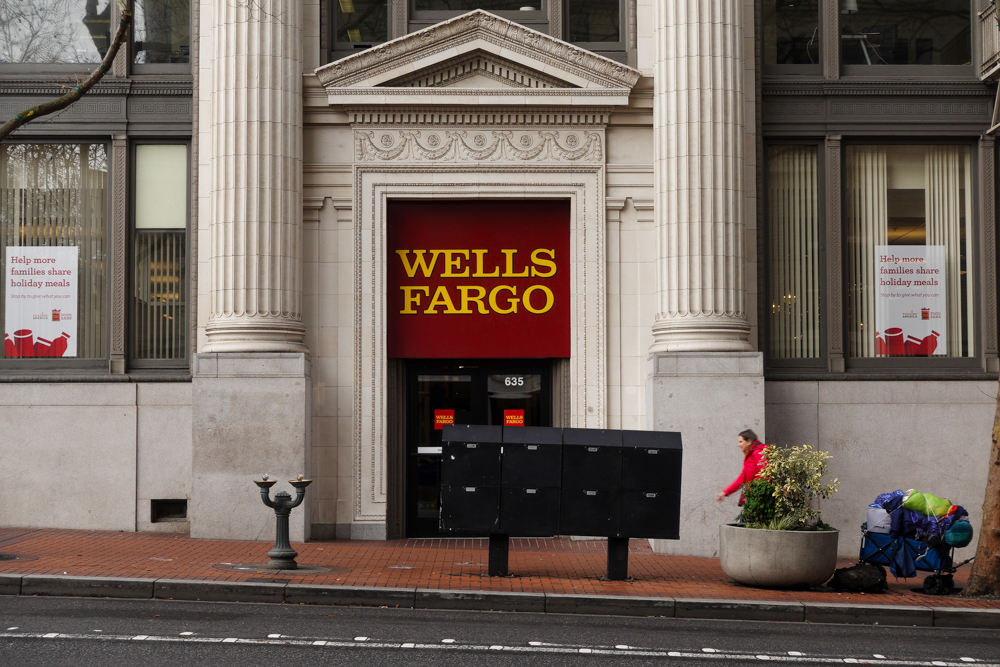A report concealed for months by the Trump administration showed college students were charged over $27 million in fees by banks over the course of an academic year, with beleaguered banking giant Wells Fargo reaping the lion’s share of the profits through fees several times higher than other financial institutions.
In a resignation letter protesting Trump administration policies, the Consumer Financial Protection Bureau’s former student loan ombudsman, Seth Frotman, said leaders of the bureau had suppressed publication of the report, which was produced by his office late last year.
The report analyzed fees associated with debit cards and other financial products provided by companies holding agreements with over 500 colleges nationwide, finding that banks paid schools to promote their products.
According to the report, Wells Fargo student account holders had the highest fees of any bank, which took in about half of all fees despite having less than a quarter of all student accounts.
The report also noted instances where financial institutions paid colleges to promote their products, which may run afoul of rules instituted by the Department of Education in 2015 requiring banks to offer services in the best financial interests of students.
Portland State’s banking services are handled by US Bank through agreements with the state government. Wells Fargo provides vault deposit services for PSU through a separate agreement, according to the university.
Wells Fargo has come under fire for a parade of scandals in recent years. In 2016, the CFPB fined the bank $3.6 million dollars for imposing illegal fees on student loan borrowers and depriving others of necessary information required to service student loans. The bank also agreed to pay $410,000 in relief to borrowers, though it admitted no wrongdoing and “voluntarily agreed to resolve the bureau’s concerns so that we can put the matter behind us,” a Wells Fargo official told MarketWatch.
Executive Vice President Tracy Curtis discussed Wells Fargo’s recent woes at a Rotary Club of Portland luncheon on Dec. 11 titled “Wells Fargo Leadership in Oregon.”
The CFPB hit Wells Fargo with $1 billion in fines earlier this year after it admitted to earning $73 million by pushing redundant car insurance on 800,000 borrowers of car loans, causing thousands of wrongful auto repossessions and a quarter-million delinquencies on loans.
“I could have retired,” Curtis said. “It would be easier for me to have walked away with what we’ve had to go through. But I trust [Wells Fargo CEO Tim Sloan] will lead this company through it.”
In an attempt to dismiss a shareholder lawsuit against the bank, statements made by Sloan to investors about commitments to transparency and rebuilding trust were characterized by the firm’s lawyers as “puffery”—exaggerated claims typically used in advertising and “on which no reasonable investor could rely.”
Less than a year ago, the CFPB ordered Wells Fargo to pay $185 million in fines and penalties as settlement for creating at least 3.5 million fake accounts without consent from consumers in order to meet sales goals.
In response to those revelations, the Federal Reserve demanded the replacement of four board members and restricted Wells Fargo from growing any further until it addressed the bank’s “widespread consumer abuses and compliance breakdowns.”
Portland Mayor Ted Wheeler explored dropping Wells Fargo as the primary banking services contractor for the city in the wake of the fake account scandal, but in June of this year Portland City Council begrudgingly voted 3-1 to extend the five-year, $675,000 deal with the bank.
Outgoing City Commissioner Dan Saltzman, who cast the sole dissenting vote, said he was conflicted despite personally banking with Wells Fargo for 30 years. “I think we are at a point where punishment may be in order.”
Having been raised by feral pandas in the remote forests of Chengdu, China has always formed a key part of my identity. After my career as a Hong Kong film producer was derailed by tabloid journalists, I knew I had found the work that would become my life’s purpose. I am passionate about journalism because it allows me to step into worlds I would otherwise never know while channeling my curiosity toward serving and informing the community.




